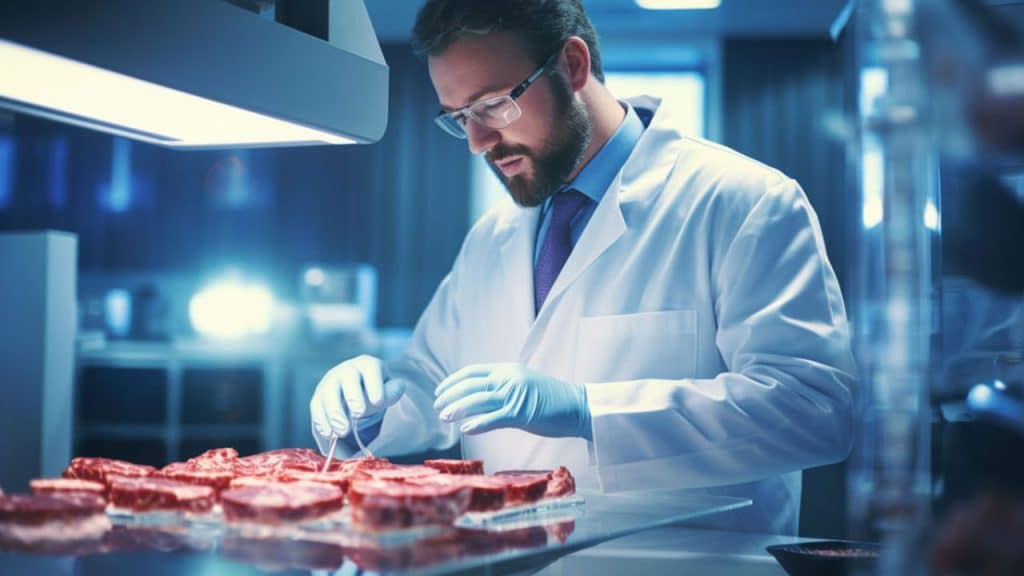Lab-grown meat? Really? I can hear your skepticism, but this is no longer the stuff of science fiction. It’s here, and now we need to consider the safety and ethics, as well as the taste, so we can decide whether it’s worth eating (https://longevity.technology/lifestyle/is-lab-grown-meat-really-a-safe-option-for-human-consumption/).
What do we mean by lab-grown meat? We mean no fields and no farms. No cows and no chickens. Just a scientist, a laboratory, and the collection of animal cells. This isn’t an invasive process, and it doesn’t harm the original creature. Normally the cells are taken from muscle tissue, then nurtured in what’s called a “medium”. Think of it as a type of fertilizer, full of all sorts of nutrients and designed to act similarly to the inside of the original animal. Here they can grow and replicate to build tissue for us to eat.
As the cells grow and multiply, they’re carefully monitored to ensure no contaminants can slip inside. Everything is controlled, from the temperature to the level of acidity. Sometimes antibiotics are used to avoid the growth of bacteria, although this is concerning considering the rise of antibiotic resistance. The medium itself allows a huge degree of control over how the meat develops, as you control what nutrients and other additives are included. Some meat will also be genetically modified to optimize growth.
For the people who are making the choice to leave animal-based products behind, whether it’s because of concerns about animal cruelty or because they’re trying to live in a more sustainable, environmentally friendly way, lab-grown meat could be a big deal. That’s if it can be as healthy and tasty as the real thing. People still have a lot of concerns, however, not just about nutrition but about ethics and transparency, especially when it comes to gene modification.
In many ways, lab-grown meat is safer. It’s easier to keep it free of bacteria and contaminants, even without antibiotic use, reducing the risk of food poisoning. It may even be possible to eliminate common allergens as part of the process of modifying its nutritional content. It could potentially be turned into the healthiest, most nutritionally balanced meat in existence.
There are concerns about lab-grown meat, but its potential in terms of safety, nutritional content and environmental impact is huge. Don’t dismiss it – at least until you’ve tried it for yourself.




